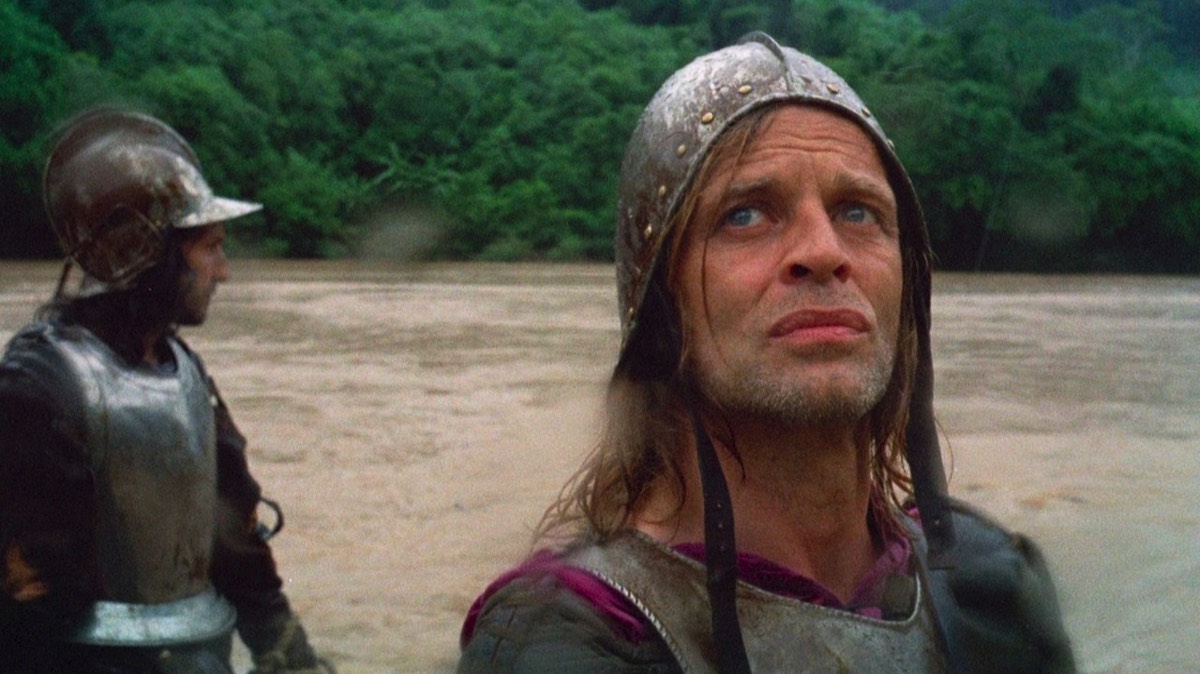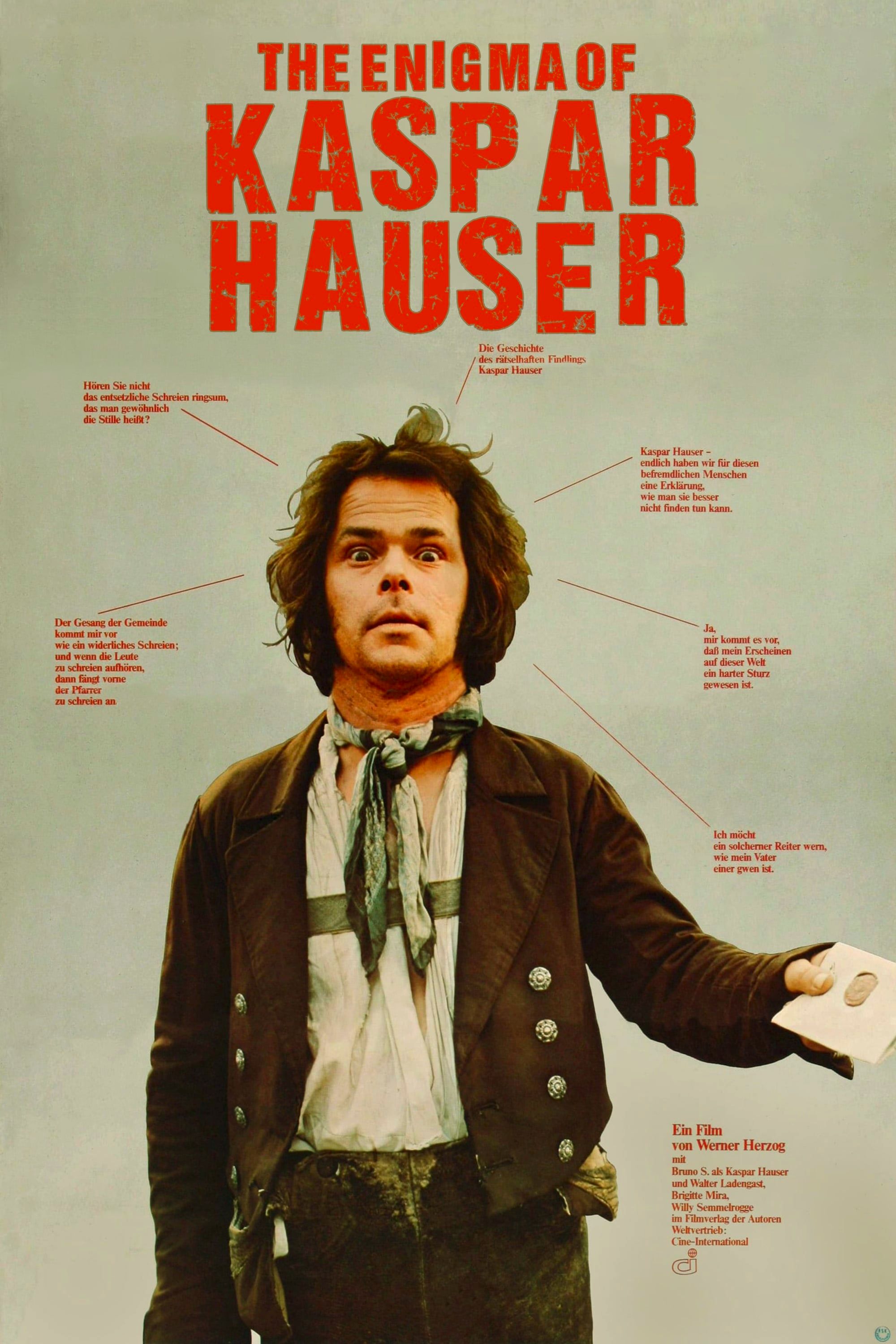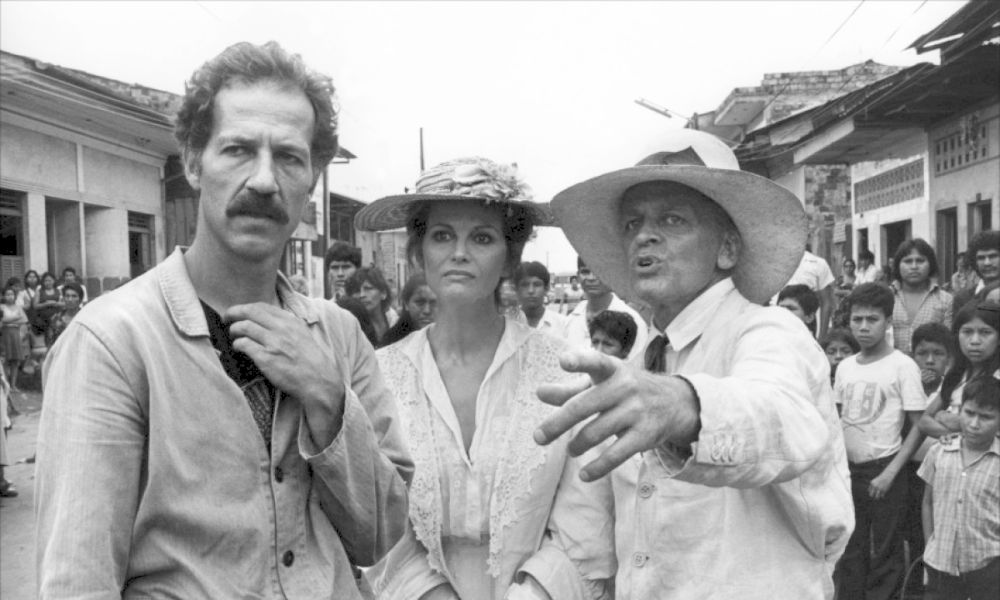"Often shooting under extreme conditions, with a bare script, Herzog's films have dragged him to the most remote and barren corners of the world. Besides sublime imagery of the world's most impressive landscapes, his approach has given his films an adventurous revolutionary spirit and emotional accuracy no travel report could deliver." - Ernest Mathijs (501 Movie Directors, 2007)
Werner Herzog
Director / Screenwriter / Producer / Actor
(1942- ) Born September 5, Munich, Bavaria, Germany
Top 250 Directors / 21st Century's Top 100 Directors
(1942- ) Born September 5, Munich, Bavaria, Germany
Top 250 Directors / 21st Century's Top 100 Directors
Key Production Countries: West Germany/Germany, USA, UK, France, Canada
Key Genres: Documentary, Biography, Culture & Society, Drama, Adventure Drama, Short Film, Adventure, History, Avant-garde/Experimental, Natural Environments, Period Film, Psychological Drama
Key Collaborators: Beate Mainka-Jellinghaus (Editor), Joe Bini (Editor), Peter Zeitlinger (Cinematographer), Thomas Mauch (Cinematographer), Popol Vuh (Composer), Jörg Schmidt-Reitwein (Cinematographer), Klaus Kinski (Leading Actor), Lucki Stipetic (Producer), Brad Dourif (Leading Character Actor), Ernst Reijseger (Composer), Clemens Scheitz (Character Actor), Eva Mattes (Leading Actress)
Key Genres: Documentary, Biography, Culture & Society, Drama, Adventure Drama, Short Film, Adventure, History, Avant-garde/Experimental, Natural Environments, Period Film, Psychological Drama
Key Collaborators: Beate Mainka-Jellinghaus (Editor), Joe Bini (Editor), Peter Zeitlinger (Cinematographer), Thomas Mauch (Cinematographer), Popol Vuh (Composer), Jörg Schmidt-Reitwein (Cinematographer), Klaus Kinski (Leading Actor), Lucki Stipetic (Producer), Brad Dourif (Leading Character Actor), Ernst Reijseger (Composer), Clemens Scheitz (Character Actor), Eva Mattes (Leading Actress)
"Werner Herzog is regarded as one of the most eccentric figures of das neue kino. His films feature inspiring landscapes and controversial actors (the flamboyant Klaus Kinski, the strange Bruno S.) at odds with their world. Herzog is also well known for the making of his films, whether hypnotizing the entire cast in Heart of Glass (1976), dragging a boat through the Amazon jungle for Aguirre, the Wrath of God (1972), or feuding with actor Kinski… One of the leading figures of the New German Cinema, he has remained a radical individualist and a cinematic visionary for over forty years. His films disturb by their questioning of the bases of human civilization and its values." - Schirmer Encyclopedia of Film, 2006
"Fond of shooting in difficult locations, he can seem as eccentric and driven as one of his heroes. Recently he appears to have found it difficult to continue making films, but his visionary work of the 70s constitutes a high point of the modern cinema." - Geoff Andrew (The Director's Vision, 1999)

Aguirre, the Wrath of God (1972)
"It was immediately clear that Herzog possessed a quick sense of narrative; a withdrawn, mobile camera; and a dark, inquisitive humour... As attention fell on Herzog, so his pursuit of extremism became a little more studied; it began to seem more zealous than natural... Herzog pictures were events in the seventies, but they became very hard to see, Fitzcarraldo was the last film to get wide screenings." - David Thomson (The New Biographical Dictionary of Film, 2002)
"One of the most influential filmmakers in New German Cinema and one of the most extreme personalities in film per se, larger-than-life Werner Herzog quickly gained recognition not only for creating some of the most fantastic narratives in film, but for pushing himself and his crew to unprecedented lengths, again and again, in order to achieve the effects he demanded." - Nathan Southern (Allmovie)
"Werner Herzog, more than any director of his generation, has through his films embodied German history, character, and cultural richness. While references to verbal and other visual arts would be out of place in treating most film directors, they are key to understanding Herzog. For his techniques he reaches back into the early part of the twentieth century to the Expressionist painters and filmmakers, back to the Romantic painters and writers for the luminance and allegorization of landscape and the human figure." - Rodney Farnsworth (The St. James Film Directors Encyclopedia, 1998)
"A leading light of the New German Cinema movement (alongside Wim Wenders, Rainer Werner Fassbinder and others) that re-energised 1970s European film, Werner Herzog forged his own idiosyncratic path from the outset – one he’s continued to follow for well over half a century… His major preoccupations appear to be twofold: marginalised human beings driven by intense passions or obsessions that often completely destroy them; and, despite, his penchant for remote, often hostile locations, to photograph an “ecstatic truth”, as he puts it, beyond mere travelogue. Herzog strives for a kind of spiritual illumination, as enigmatic as it can be elusive, beyond normative, surface reality. As such, there’s often an introspective, philosophical quality to his buccaneering adventures, particularly in those non-fiction films structured around his distinctive, often-parodied, Teutonic-toned narration." - Leigh Singer (BFI, 2024)
"The auteur theory of directorial supremacy promulgated by the Cahiers du Cinéma boys seems tailor-made for the philosophically inclined Herzog. Indeed his single-mindedness in getting his visions onto celluloid has sometimes more resembled the compulsive tic of an incipient madman, particularly when twinned with the complementary mania of actor Klaus Kinski, whom Herzog, despite his better judgment, and at some considerable risk to what remained of his own sanity, persisted in using as his alter ego on screen." - Mario Reading (The Movie Companion, 2006)
"With a career that spans more than six decades, Werner Herzog has created an exceptional body of work that encompasses nonfiction and narrative filmmaking, prose writing, directing opera and theater, and appearing as both a subject and an actor in film and television. His involvement is total. Coming up as a filmmaker in the 1960s, Herzog gained recognition as one of the brilliant young filmmakers of the New German Cinema movement. Herzog has always had a great facility for storytelling (he holds the screenwriting credit on nearly all his films), and his fascination with eccentric characters, whose lives and endeavors he observes, allows him to illuminate the human condition." - Susan Oxtoby (BAMPFA, 2023)
"Herzog exerts total control over his work, which he also produces and writes. His films are deeply personal and thoroughly uncompromising. Although he once stated that "film is not the art of scholars but of illiterates," much of his work remains beyond the grasp or interest of mass audiences. But he is increasingly admired by a widening horde of filmgoers as one of the most creative and exhilarating artists on the international film scene today." - The MacMillan International Film Encyclopedia, 1994
"One of the best of the new wave of German filmmakers, Herzog has already mastered themes of illusion, delusion, alienation, and hypocrisy." - William R. Meyer (The Film Buff's Catalog, 1978)
“Filmmaking is athletics over aesthetics”, says the indefatigable Werner Herzog, whose astonishing body of work is evidence of a director with the physical and psychological fortitude of an iron-man triathlon runner. Herzog’s is a cinema of extremes of climate, circumstance and human endurance.” - Jessica Winter (The Rough Guide to Film, 2007)
"There are certainly laws and elements that make a film more accessible to mainstream audiences. If you've got Tom Cruise as a strongman, I'm sure it would have larger audiences, but it wouldn't have the same substance." - Werner Herzog
"I cannot work fast enough. I cannot cope fast enough, really. And just releasing a film is hard." - Werner Herzog
Selected Filmography
{{row.titlelong}}
GF Greatest Films ranking (★ Top 1000 ● Top 2500)
21C 21st Century ranking (☆ Top 1000)
T TSPDT R Jonathan Rosenbaum S Martin Scorsese
21C 21st Century ranking (☆ Top 1000)
T TSPDT R Jonathan Rosenbaum S Martin Scorsese
Werner Herzog / Favourite Films
Freaks (1932) Tod Browning, Intolerance (1916) D.W. Griffith, Nosferatu (1922) F.W. Murnau, Rashomon (1950) Akira Kurosawa, Where is the Friend's House? (1987) Abbas Kiarostami.
Source: Rotten Tomatoes (2009)
Freaks (1932) Tod Browning, Intolerance (1916) D.W. Griffith, Nosferatu (1922) F.W. Murnau, Rashomon (1950) Akira Kurosawa, Where is the Friend's House? (1987) Abbas Kiarostami.
Source: Rotten Tomatoes (2009)
Werner Herzog / Fan Club
Audrius Stonys, Roger Ebert, Nigel Andrews, Michael Atkinson, Richard Combs, Massimo Causo, Todd McCarthy, Sam Wigley, Ernest Chan, Fernando Meirelles, Long Tin Shum, Lodge Kerrigan.
Audrius Stonys, Roger Ebert, Nigel Andrews, Michael Atkinson, Richard Combs, Massimo Causo, Todd McCarthy, Sam Wigley, Ernest Chan, Fernando Meirelles, Long Tin Shum, Lodge Kerrigan.
"Fan Club"
These film critics/filmmakers have, on multiple occasions, selected this director’s work within film ballots/lists that they have submitted.
These film critics/filmmakers have, on multiple occasions, selected this director’s work within film ballots/lists that they have submitted.


